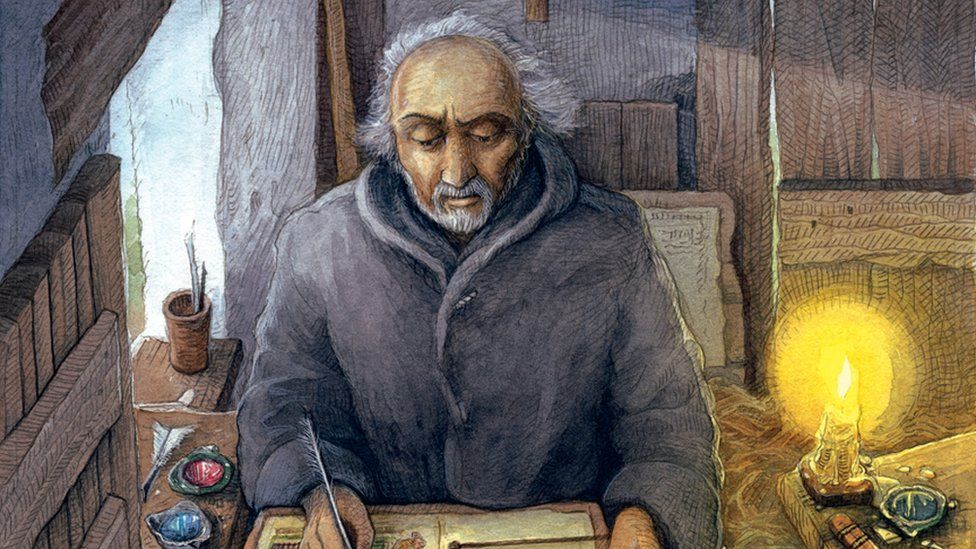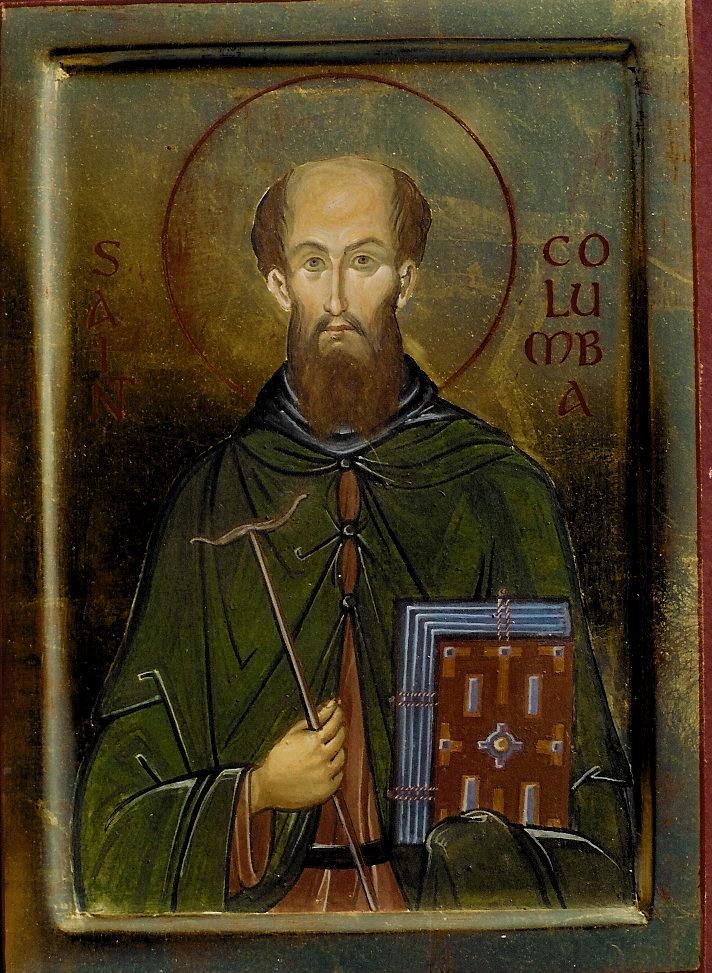St. Columba of Iona, Abbot
St. Columba of Iona, Abbot
St. Columba is a saint who still, after fourteen hundred years, exerts an appeal upon our imaginations. Born in Ireland, in Donegal in the year 521, he was of the blood royal, and might indeed have become High King of Ireland had he not chosen to be a priest. His vital, vigorous personality has given rise to many legends, and it is a little hard to sift fact from what is more probably fiction. We do know that he was a man of tremendous energy, probably somewhat headstrong in his youth, but with his tendency to violence curbed by a gentle magnanimity.

It seems certain that he left Ireland as an act of penance, although it is less certain how far this was connected with his quarreling over a copy of the Gospels he had made, a dispute that led to a bloody battle. He came from Ireland to Scotland, to the colony of Dalriada founded on the west coast by his fellow Irish Scots who were at that time somewhat oppressed by the dominant Picts. With twelve companions he founded his monastery on Iona in the year 563. These Celtic monks lived in communities of separate cells, but Columba and his companions combined their contemplative life with extraordinary missionary activity. Amongst his many accomplishments, Columba was a splendid sailor. He sailed far amongst the islands and traveled deep inland, making converts and founding little churches. In Ireland he had already, it is said, founded a hundred churches.

Of all the Celtic saints in Scotland, Columba’s life is much the best documented, because manuscripts of his life, written by St Adamnan, one of his early successors as abbot of Iona, have survived. Iona itself remains a place of the greatest beauty, a serene island set in seas that take on brilliant colors in the sunshine, recalling the life and background of this remarkable man whose mission led to the conversion of Scotland and of the north of England, and indeed carried its influence far further afield. It later became the site of a Benedictine Abbey and of a little cathedral. These were dismantled by the Scottish reformers in 1561, and part of Columba’s prophecy was fulfilled:
In Iona of my heart, Iona of my love,
Instead of monks’ voices shall be lowing of cattle,
But ere the world come to an end
Iona shall be as it was.
When Dr Samuel Johnson visited the island in 1773 he observed, ‘That man is little to be envied, whose patriotism would not gain force upon the plain of Marathon, or whose piety would not grow warmer among the ruins of Iona!’
Columba was a poet as well as a man of action. Some of his poems in both Latin and Gaelic have come down to us, and they reveal him as a man very sensitive to the beauty of his surroundings, as well as always, in St Adamnan’s phrase, ‘gladdened in his inmost heart by the joy of the Holy Spirit.’ He died in the year 597.
Courtesy of the Catholic Information Network